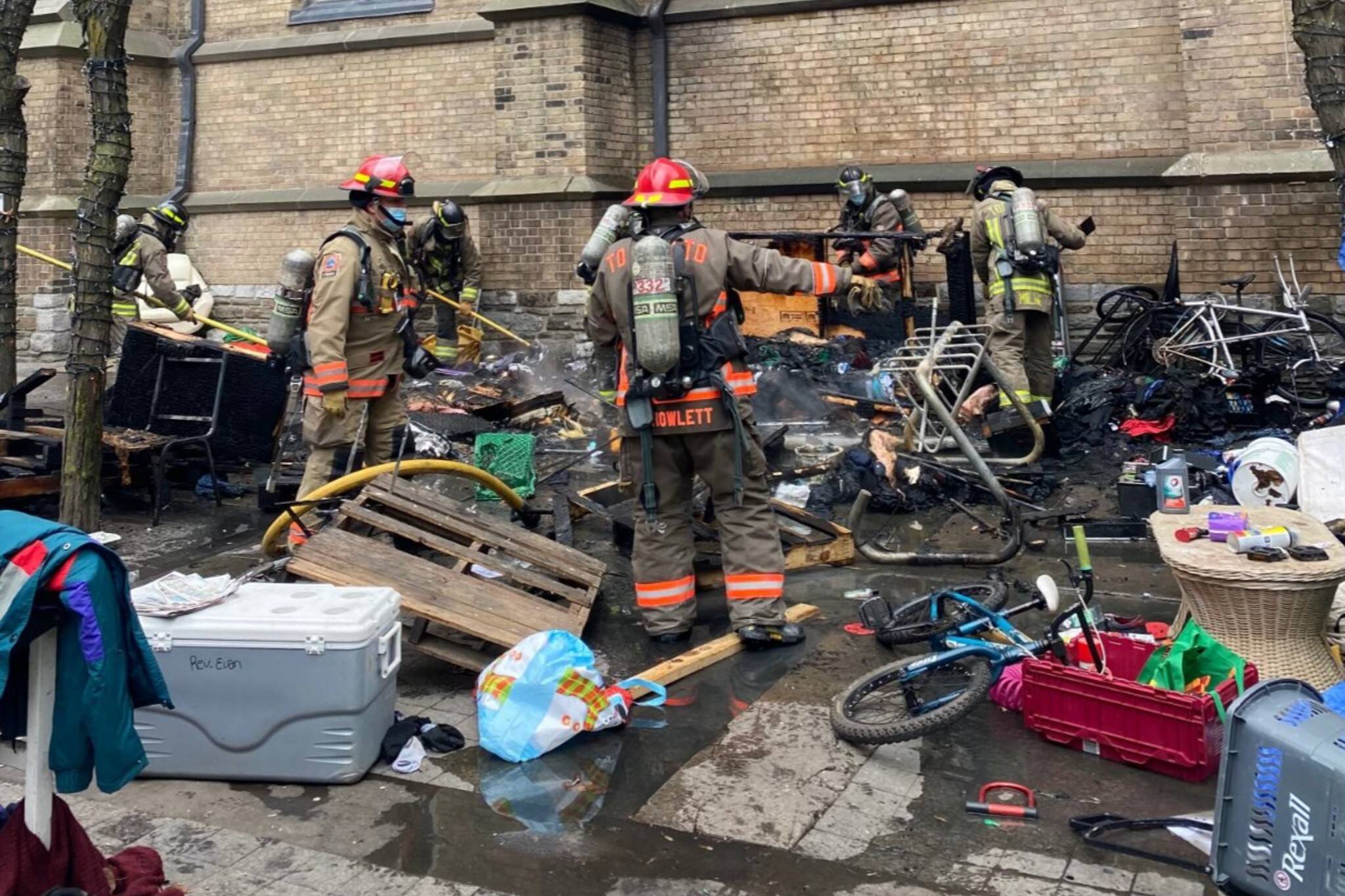
Explosive fire ravages Toronto homeless encampment
Encampments in parks across Toronto have become increasingly commonplace as a result of the ongoing homelessness crisis, which has been drastically exacerbated by the pandemic, and dangerous fires at these encampments are also on the rise.
The most recent incident took place on Sunday, when a large fire that started with a wooden structure broke out at the Trinity Park encampment behind Toronto's Eaton Centre.
Fortunately, despite a small explosion from a propane tank, no one was injured, according to city councillor Kristyn Wong-Tam.
Today a large fire at the Trinity Park encampment was put out by @Toronto_Fire. The Chief reports that the fire seems to have started with a wooden structure. Despite a small explosion from a propane tank, remarkably and luckily no one was injured. pic.twitter.com/D3rPrgCvri
— Kristyn Wong-Tam (@kristynwongtam) January 17, 2021
"Fire can quickly engulf older buildings and in this case, the exterior walls were scorched but thankfully the fire didn't get inside," said Wong-Tam of the church adjacent to the encampment.
"It could have been significantly worst."
According to the city, as of Dec. 18, there were approximately 400 tents and many other makeshift shelters set up across 80 camps in parks throughout Toronto.
But as the number of encampents has grown, so too has the number of fires, with roughly triple the number of encampment fires reported in 2020 compared with 2019, according to Toronto Fire Services.
In May, one person died following a fire at an encampment under a Toronto bridge.
"Encampments in parks and other public spaces pose a significant risk of fire and other hazards to those living in an encampment, as well as to emergency responders when called to a site," said the city in a news release back in December.
"Open flames, generators and unsafe wiring, combined with the storage of gasoline, propane and other highly flammable substances makes living outside extremely dangerous."
These encampments are also illegal, according to a municipal bylaw that prohibits sleeping in a park overnight, and city staff have been working to remove residents living in these camps for months despite outrage from the public.
Since the pandemic began, the city says staff have helped more than 1,100 people move inside from encampments, and they've created roughly 2,300 spaces in new temporary shelter and hotel programs.
But shelters still remain largely at or over capacity each night, leaving many residents experiencing homeless with no choice but to sleep in outdoor encampments.
And even when spots are available, some say they still prefer to stay in encampments, citing safety, COVID-19 risks, freedom and comfort as just some of the reasons why.
If you ask me this will lead to more people wanting to stay in encampments......3
— CathyCrowe (@cathyacrowe) January 15, 2021
Advocates are therefore renewing calls for the city to implement some of the 35 health and safety recommendations made following the coroner's inquest into the tragic death of Grant Faulkner at a homeless encampment fire nearly six years ago, including the distribution of safer heat sources.
Encampment residents reported that City workers came at 4am to the park & removed two tiny homes + tent, with all their belongings in it. No advance notice given.
— Lorraine Lam (@lorrainelamchop) January 12, 2021
No alternative offers were given. I thought we were trying to build trust with the city? This isn't it. Pls explain.
With nowhere else to go, it's clear many of these encampments aren't disappearing anytime soon, and advocates say the city should be focusing on keeping people warm and safe while also focusing on fire prevention rather than removing resident's belongings from parks — leaving them worse off than before.
Latest Videos
Latest Videos
Join the conversation Load comments







